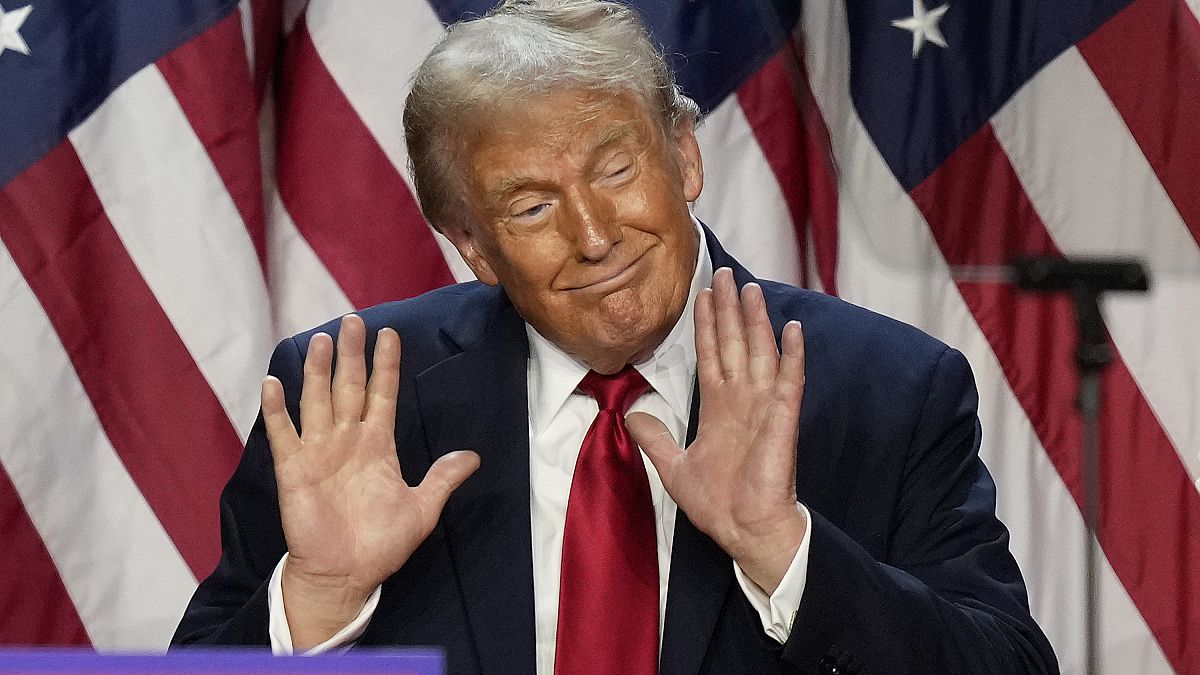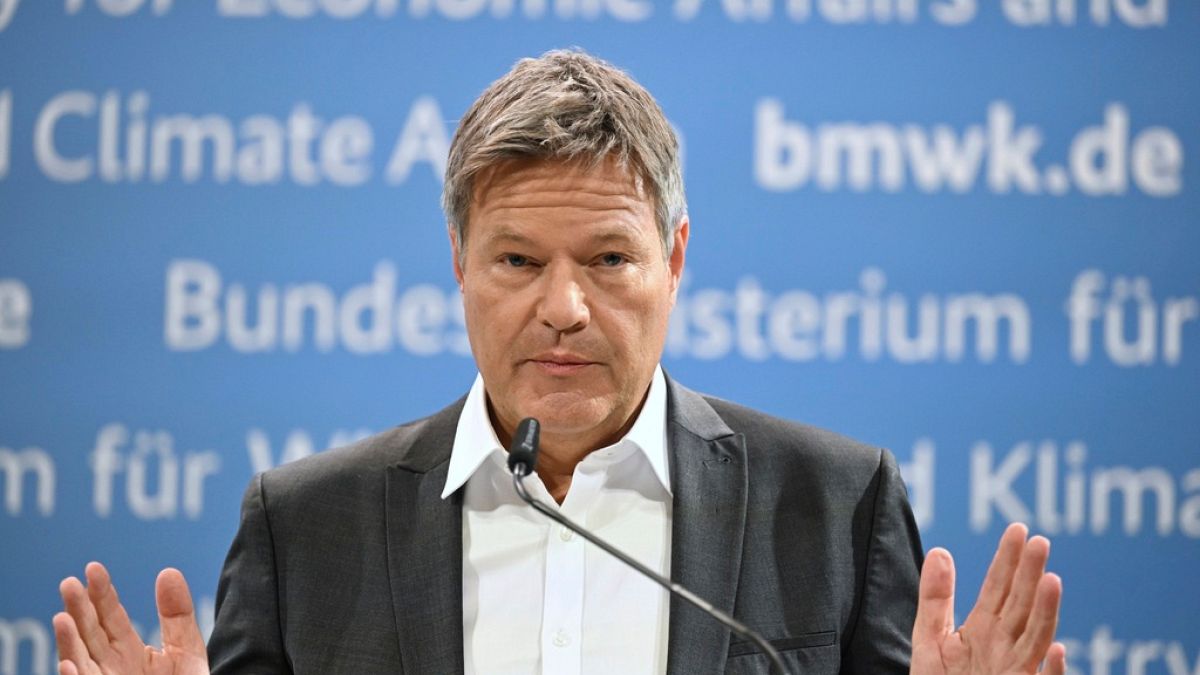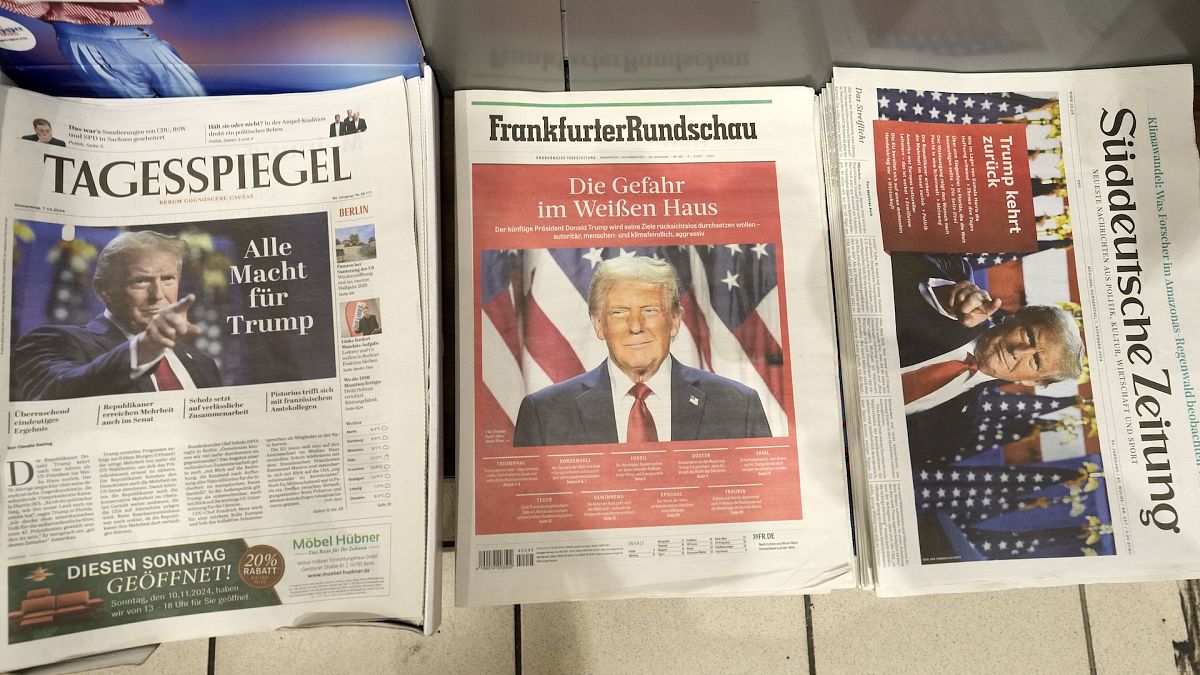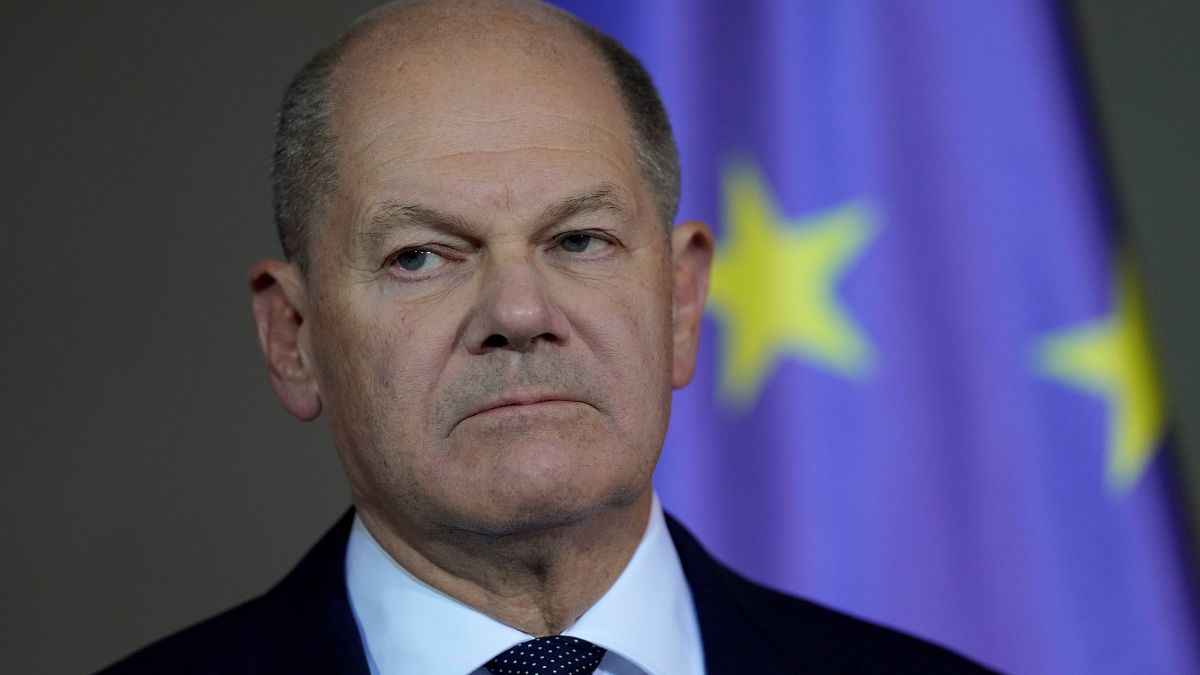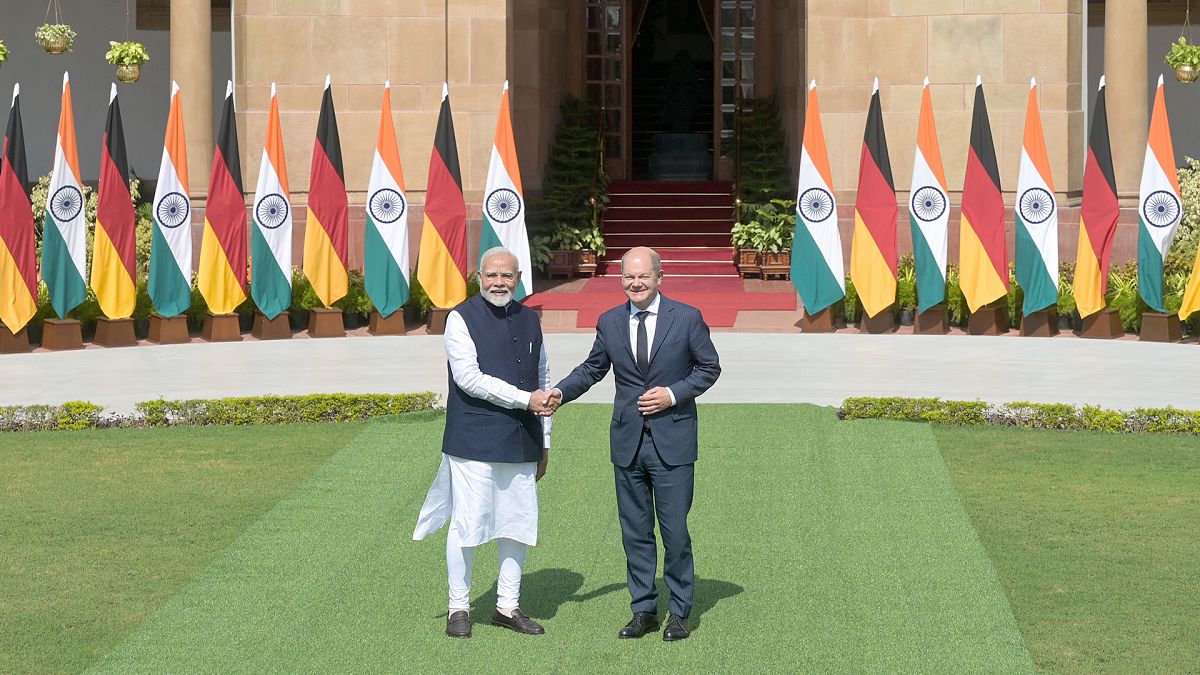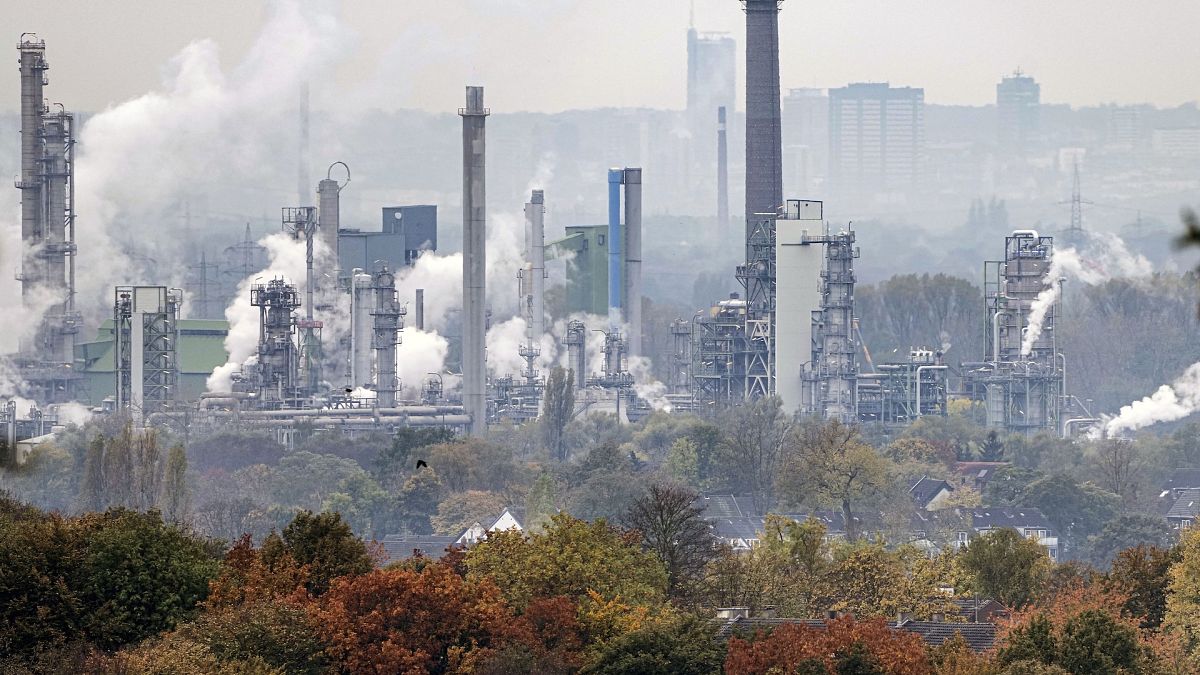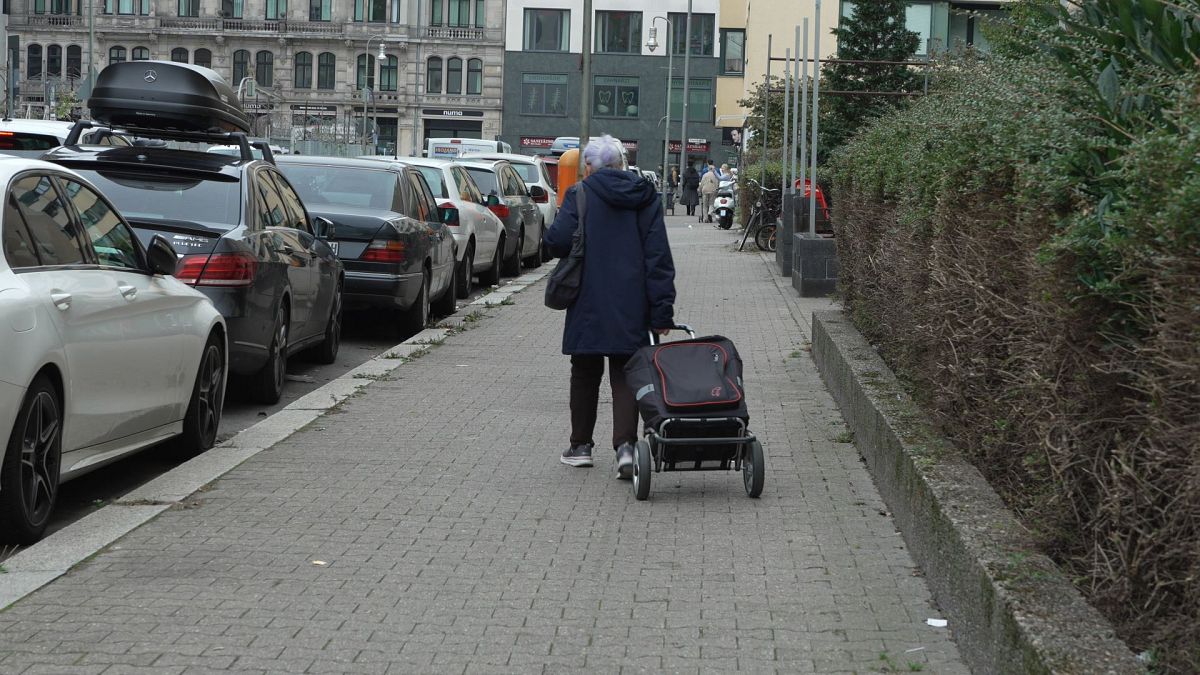State of the Union: Germany’s border politics and US election campaign

This week, State of the Union focuses on the latest round of immigration politics in Germany and voting patterns in the US and elsewhere.
The recent gains of the far right in regional elections in East Germany continued to make waves this week as the center-left coalition of Chancellor Olaf Scholz tried to seize back the initiative.
In an attempt to further crack down on illegal immigration, Germany is now tightening controls at its borders, undermining – at least for six months – the Schengen system, Europe’s visa-free area of unrestricted movement.
This in reaction to a 33% rise in irregular border crossings, according to the latest official numbers.
“We will therefore extend our temporary border controls to all German land borders,” said German Interior Minister Nancy Faeser. “This serves to further limit irregular migration and to protect against the acute dangers posed by Islamist terror and serious crime.”
With this move, the ruling coalition hopes to win back voters in the next regional election in East Germany a week from now.
Budapest threatens to bus asylum seekers to Brussels
Meanwhile, the latest row between the EU Commission and Hungary over immigration is about to escalate.
Budapest vowed retaliation for a €200 million fine imposed by the European Court of Justice over Hungary’s treatment of asylum seekers.
“Should the European Union, Brussels, want to force Hungary to let in the illegal migrants (…), then Hungary, after following the European procedures, will offer these illegal migrants, voluntarily, free of charge, one-way travel to Brussels,” said Hungarian Interior State Secretary Bence Rétvári. “If Brussels wants migrants, they can get them.”
Budapest’s threat triggered sharp criticism from Belgium and the EU Commission.
No bus transfer has taken place yet, and they might never happen at all.
Yet, the recent sharp focus on immigration shows how the rise of populism in elections in Europe throughout the year is influencing the political debate.
Speaking of debate, in the United States, where far-right populism is making another run at the presidency, Donald Trump and Kamala Harris faced off in what was probably their only televised debate.
Polls taken immediately afterwards saw Harris as the clear winner – but the race remains tight.
A race both campaigns have claimed is all-important for the survival of democracy.
Age and gender important in US vote
For more on this, we spoke to Ben Ansell, political scientist at the University of Oxford, host of the podcast “What’s Wrong with Democracy?” and author of “Why Politics Fails”.
Euronews: So, is democracy in decline and do the elections of 2024 so far reflect that?
Ansell: This year, 4 billion people went to the polls to vote. Half of them in countries with free and fair elections. And for the most part, the results of those elections should encourage us. So, for example, in Turkey, [President Recep Tayyip] Erdoğan has not succeeded in controlling some of the local cities. So he’s sort of on the defence. Narendra Modi getting a fair and free election, but one that people thought he was going to dominate and strengthen. He did worse than expected. Last year, PiS in Poland finally lost. So actually, in lots of places where we were concerned that democracy might be weakening, it hasn’t.
Euronews: With the US presidential elections just around the corner, are identity politics and misinformation tearing democracy apart?
Ansell: The kind of identity politics that is used in misinformation that people get excited about has always been with us, but people have always voted by their demographics. And in fact, what we’re seeing in the US election with Hispanic and African-American voting looks pretty similar to 2008, maybe also to the 1990s. So, the fact that people vote their identities is nothing new in American politics. What’s new maybe is the polarization in the media around that.
Euronews: There has been a special focus this year on first-time voters – what can we expect from them in the US elections?
Ansell: Kamala Harris has a lead among younger Americans, and that’s why she’s really changed the narrative from Joe Biden. And Biden actually did very well, maybe not surprisingly, among senior citizens in America, cut into Trump’s edge there. But he lost a lot of young voters concerned about Gaza, yes, but also concerned about inflation, concerned about the housing market and concerned about voting for somebody in their 80s. And so, I suspect that we will see many more young people out to vote than we would have done with Biden. And then in most recent elections.
Euronews: There is also a growing gender divide when it comes to voting, women voting differently than men – how do you explain this?
Ansell: It’s always been true that women and men have voted differently. But what is new about today is that the gender gap is just enormous. Right? So, right now it looks like there’s a 20-point gender gap. So, if you like, Harris is sort of plus ten with women and Trump is plus ten with men. So, that’s a huge difference. Now women turn out to vote more. So actually, that’s an in-built advantage for Kamala Harris. Why is that happening more? This election may be because of having a woman on the ballot, I think more likely because of abortion.
Source: Euro News


